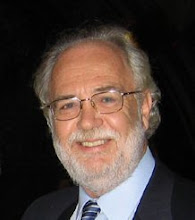Government to close BECTA
BECTA is the British Education and Communications Technology Agency, which is responsible for information and support regarding the use of ICT to schools and other educational institutions throughout the UK.
Way back in 1981 BECTA was known as the Council for Educational Technology (CET). I was invited in that year to a meeting with representatives from the CET and CILT (now known as the National Centre for Languages), which led to the first major UK conference on the use of computers in language teaching and learning - at which I gave my first public presentation on computer assisted language learning.
The CET changed its name a couple of times in the following years, first to the National Council for Educational Technology (NCET) and later to the Microelectronics in Education Support Unit (MESU). I have some good publications on my bookshelves that date back to that era, e.g.
- Learning languages with technology (printed materials), NCET, 1988
- Videocassette on the Granville simulation, NCET, 1988
- Accent on IT (videocassette and printed materials), MESU, 1997
The name change to BECTA took place in 2000, and from this point on I think the agency began to lose the plot. It became more technology-driven, and the needs of language teachers (and other non-technical subject areas) were overlooked. The 1980s was a good period, but pedagogy faded into the background in the 1990s, and then BECTA got involved in expensive, grandiose (but short-lived) schemes such as the National Grid for Learning (NGfL) and Curriculum Online. There is very little at the BECTA site now that focuses on language teaching and learning.
Teachers do not need a costly government agency like BECTA. There are hundreds of sites on the Web where useful information about ICT can be obtained, and teachers also tend to use social networks if they are looking for information or advice. Frankly, I am happy to see BECTA disappear.




